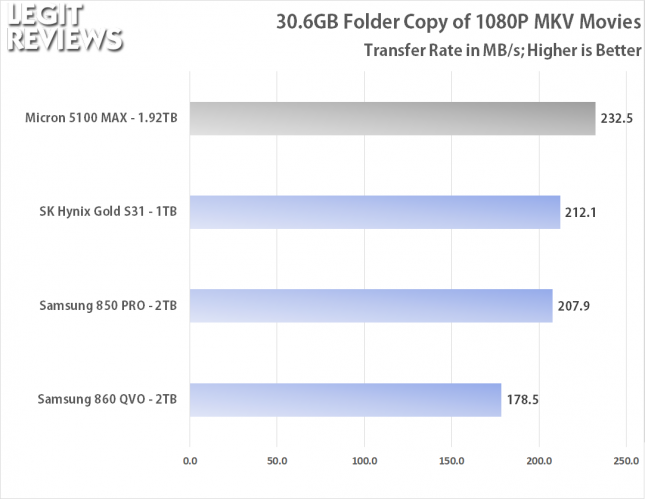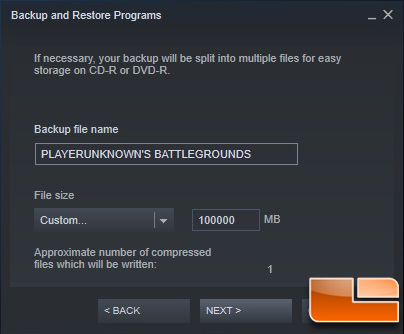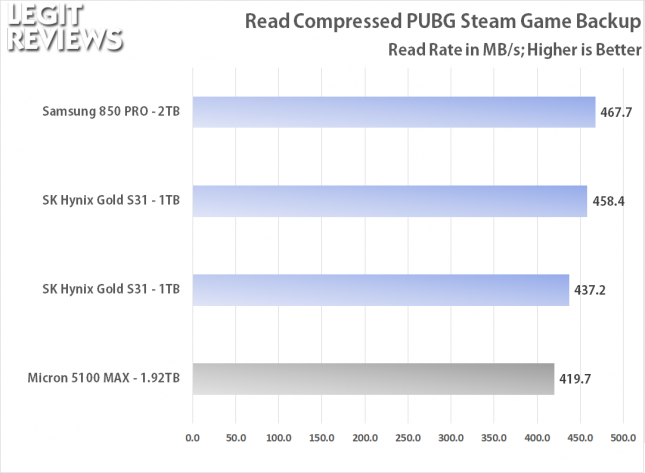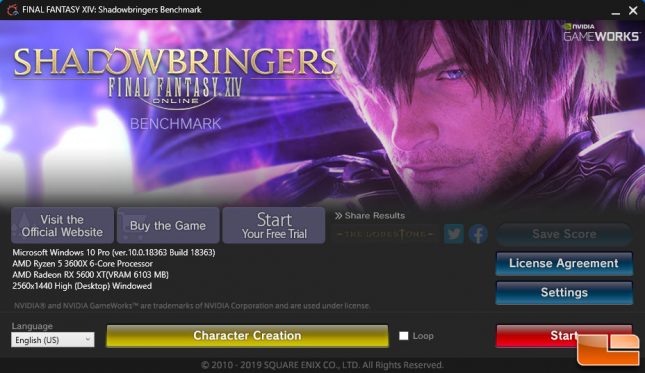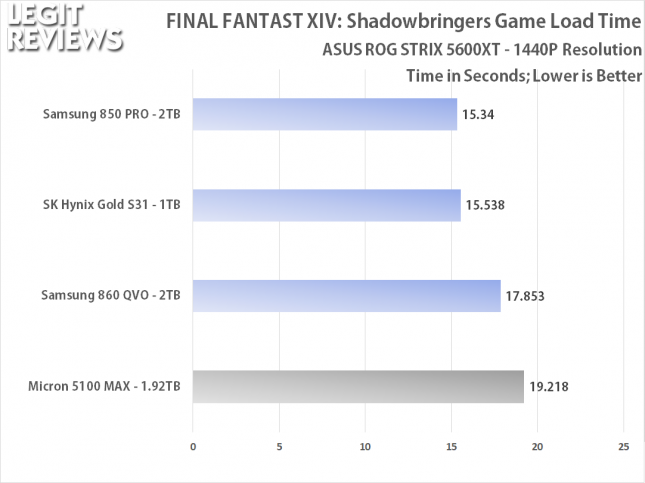Micron 5100 MAX 1.92TB SATA SSD Review
File Transfer, File Read and Game Load Times
Real World File Transfer
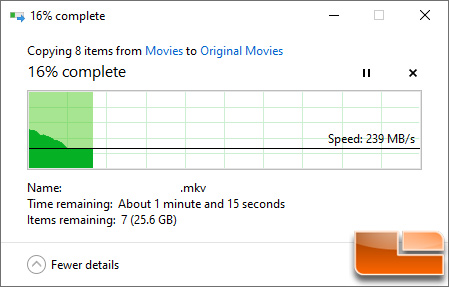
Let’s see how real-world performance was when writing a movie folder containing seven 1080P movies over to the SSD. For this test, we are going to measure write performance by copying a 30.6GB folder of movies off from the drive being tested back to itself to see how performance looks. This action is basically a long linear sequential write operation and punishes the SLC Cache on many drives.
When it comes to writing a bunch of data to the drive without any breaks, the Micron 5100 MAX 1.92TB drive delivered the best performance of the bunch. This drive was designed to handle sustained writes and it does well there.
Custom Read File Test
The next custom test that we are going to do is how fast each drive can read a compressed folder. For this we backed up a Steam copy of PlayerUnknown’s Battlegrounds for the test file. The compressed folder contains 59 titles and is 27.3 GB (29,409,916,771 bytes) in size.
When it comes to reading a compressed Steam Backup file the Micron 5100 MAX averaged 419.7 MB/s and that is fairly close to normal consumer SSDs.
Game Load Time Testing
Game Load Time Testing
To test game load times we used the benchmark for the game title Final Fantasy XIV: Shadowbringers that was released in July 2019. We bumped up the resolution from 1080P to 1440P, but other than that we left all the settings at their stock values. Pretty much every SSD on the market today claims to be aimed at gamers, so this test shows you how the drives we tested perform on an actual game title in a series that every gamer has heard of.
Benchmark Results: The Micron 5100 MAX 1.92 TB drive was never optimized for gaming, so it isn’t a big shock that it finished a number of seconds behind consumer SATA III SSDs.
Let’s wrap up this review!

